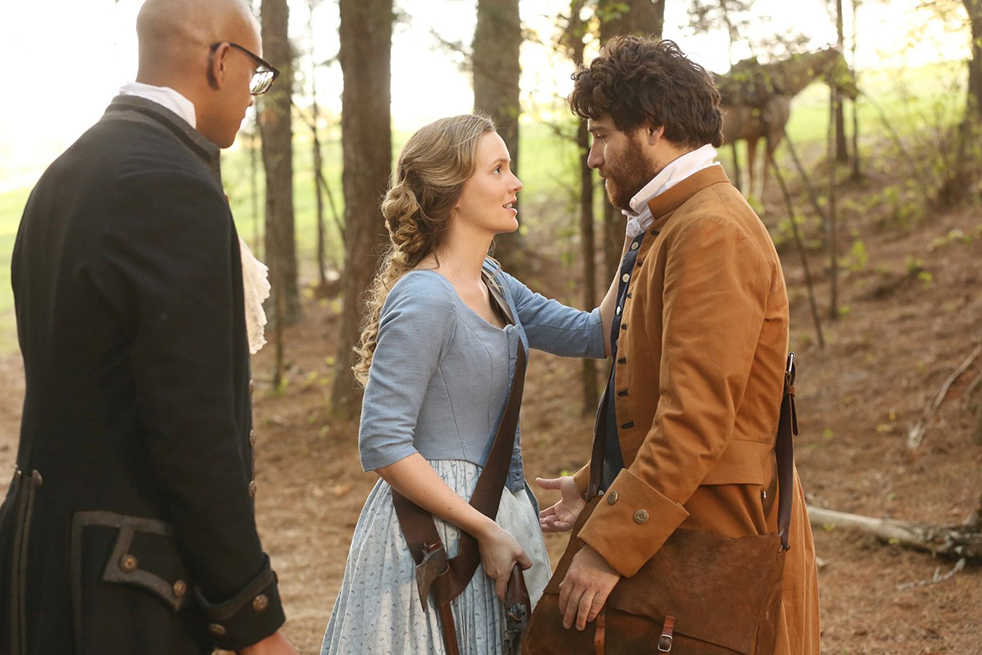“Making History,” a new comedy show airing on Fox, made its television debut on Mar. 5, 2017. The show’s executive producers are the successful movie-making duo of Phil Lord and Christopher Miller, who together have directed, written or produced many successful comedies.
Their impressive repertoire includes “Cloudy with a Chance of Meatballs,” “21 Jump Street,” “Brooklyn Nine-Nine” and “How I Met Your Mother.” The pair will also be lending their talents to upcoming productions like “The Lego Movie Sequel” and the presently untitled Han Solo film.
Unfortunately, when it comes to their latest involvement, “Making History,” Lord and Miller have largely failed as producers in recruiting the talent necessary to deliver the same high quality content that they have been able to produce in the past. For any project that a producer undertakes, their role is to cooperate with other creative minds to settle on the central vision for a project, and then compile a team of writers, directors and actors who will be able to work together to achieve that vision.
Naturally, the creative process will yield some visions that are modest and some that are grand. Even if the creative vision for “Making History” was as simple as creating the next passively enjoyable comedy to watch mindlessly on a Sunday evening, the unfunny writing, senseless progression and hackneyed themes do not allow “Making History” to meet this low set of standards.
The show’s biggest issue is that the writing is simply not funny. To an extent, the quality of a television show or movie can be sustained solely by its dialogue: shows that would be otherwise average can succeed as long as the writing is also excellent.
This reliance on dialogue is exhibited by “New Girl,” another Fox comedy and the network’s most successful to date. Its premise of one girl and three guys living in the same Los Angeles loft and navigating the trying times of early adulthood together is not particularly innovative; the characters are just as idiosyncratic as the modern-day sitcom requires.
But the show has excelled thus far because of its writing. Every line from a character serves to further develop that character’s personality to the audience. Because each one has more than their fair share of weird habits and peculiarities, the show’s conflicts and storylines are genuinely funny.
Now, contrast that type of writing with the type found in “Making History.” The show’s premise is that the protagonist, Dan (Adam Pally, “The Mindy Project”), can use a time-traveling machine that he invented to go back in time to different times in history. In the pilot, he travels back in time to the American colonies circa 1775.
His 21st century speaking expressions like “bro” and “bysies” are quite different from the expressions of the colonial people. His American colonist friends are pleasantly surprised by his foreign diction. In these moments, the audience knows that what is happening is supposed to be funny, but the joke rings hollow.
Another major issue is that the writers offer little back story to the characters or plot. The writers’ choice to blatantly gloss over any preface for the show is absurd. An excuse can be made for a show’s bad writing, but combining that weakness with an unwillingness to develop a cohesive plotline is unacceptable.
The underexplained plot is exemplified in the scenes when it is revealed that Dan already has a revolutionary era girlfriend named Deborah (Leighton Meester, “Gossip Girl”), has already met and befriended Samuel Adams and John Hancock, and has lived in the shadow of his father, who actually invented the time-travel technology, for his whole life.
For a pilot, the plot moves much too quickly. By the end of the episode, Chris (Yassir Lester, “The Bet”), Dan’s friend from the 21st century, stays back in 1775 to start the American Revolution while Deborah comes back to the present with Dan.
Perhaps over the course of the first season the show will offer more character and plot background, albeit in a roundabout way. However, if the series continues on its current path, the lack of backstory and the plot’s hasty progression will prevent audiences from gleaning any kind of enjoyment from the show.
The most disappointing aspect of “Making History” is that its overwhelming issues prevent any redeeming qualities from emerging. The premise of friends who travel back and forth in time in order to ensure that history advances the way it should is trite. This concept would probably work better if it were adapted to a children’s educational show.
Furthermore, the incredibly common sitcom television trope of Average White Guy and Overacting Black Friend Going on Adventures has been seen time and time again and in many forms. While it worked on “Psych” for most of its eight seasons, what sitcom television currently needs is innovation, not beating a dead horse.
Hopefully, the writing, storylines and themes of “Making History” will improve as the show continues. Many television shows, like “Parks and Recreation” for instance, experience weak first seasons but improve substantially after characters become more developed and engage in well-contrived story arcs.
As for “Making History”, the only draw for tuning in again on Sunday evening is finding out to which point in time the characters travel. The only direction left for the quality of the show to go is up, or it risks a quick cancellation.
